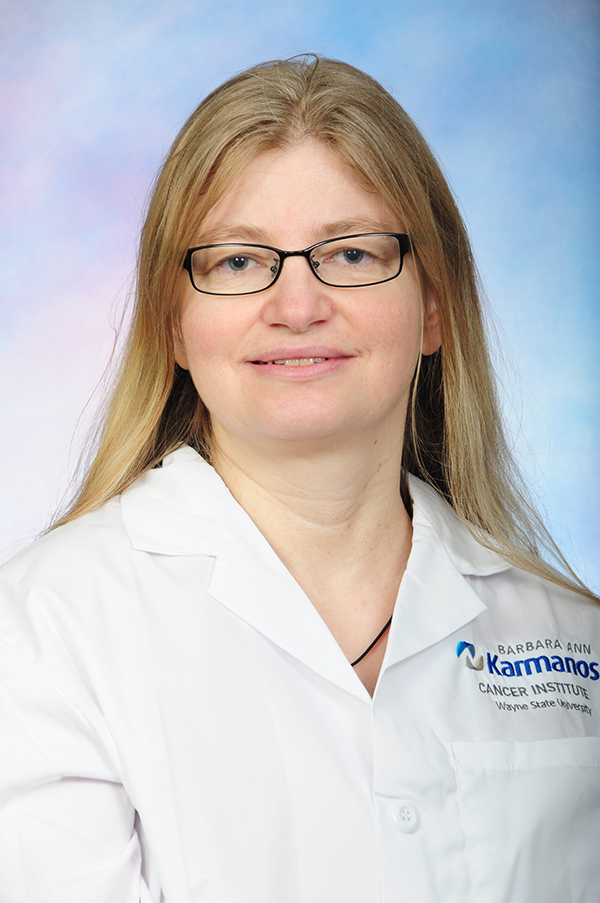
For Karin List, Ph.D., associate professor of Pharmacology for the Wayne State University School of Medicine and director of Transgenic Technology for the Barbara Ann Karmanos Cancer Institute, cancer research isn't a solitary endeavor. And it isn't meant to be, she says.
"Our work studying matriptase (a protease implicated in tumor progression) was five to six years in the making and it was highly interdisciplinary," she said. "There have been different people involved. It's rewarding when you can get the basic research and clinical disciplines together. The research has more impact."
Dr. List is the recipient of this year's Drs. Anthony and Joyce Danielski Kales Endowed Faculty Award for Cancer Research. The award, created in 2012 to recognize exemplary and innovative cancer research, is given to a WSU faculty member affiliated with Karmanos. Dr. List has been particularly recognized for her publication in Nature Communication, titled, "Targeting matriptase in breast cancer abrogates tumor progression via impairment of stromal-epithelial growth factor signaling."
Dr. List will receive a Kales Award plaque at a special event and Grand Rounds session at 4:30 p.m. Oct. 20 in the Wertz Auditorium at Karmanos' Hudson Webber Cancer Research Center. She will speak about her research at the grand rounds.
Matriptase is a type of protease. Proteases are cellular enzymes that cleave proteins. They play a role in cell movement, promote blood clotting and spur tissue development, among other activities. At elevated levels, they also can lead to the development of cancer. Dr. List has studied matriptase, as well as prostasin, another type of protease, as potential therapeutic targets in the treatment of metastatic breast cancer. She received a National Institutes of Health RO1 grant four years ago for her work studying matriptase and prostasin.
"We have shown that if we inhibit matriptase in breast cancer cells, it results in less activation of a growth factor that promotes tumor growth," she said. "Our plan is to test the effects of matriptase inhibition in additional models to determine if it's applicable in patients. We're still at the basic level of research … but preclinical testing is in our future plans."
Her research precedes her time at WSU and Karmanos. She worked at the NIH from 2000 to 2007 and created several of the models in which to study matriptase.
Dr. List said that that the work is a collaboration between her, other Karmanos and WSU faculty members, national and international collaborators, and the trainees in her research group. She said that it's working with trainees that she enjoys most.
"They are a lot of fun to work with in the laboratory," she said. "They're so enthusiastic and full of new ideas and they help me remember that this is a really cool job, conducting research."
She said that as she has continued her role as a cancer researcher, her work has become even more relevant to her, particularly because she recently lost a childhood friend to cancer.
"There's so much research that's been done, but people are still dying of cancer," Dr. List said. "Conducting research is a very humbling experience. I like to meet the patients and survivors to keep things in perspective. You don't want to forget them."